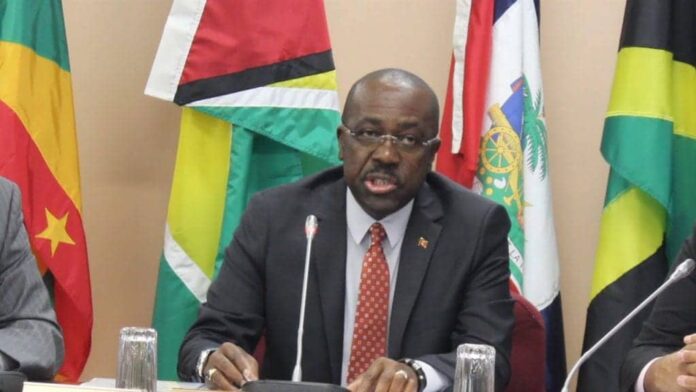Antigua and Barbuda’s Foreign Affairs Minister, Chet Greene, has voiced concern over what he sees as a breakdown in regional diplomatic protocol after former Trinidad and Tobago Prime Minister Dr. Keith Rowley was stopped twice by immigration authorities at VC Bird International Airport without the Antiguan government’s prior knowledge.
Rowley, who stepped down from office in March, revealed this week that he was flagged during two separate visits to Antigua—on July 13 and again days later while returning to Trinidad from Montserrat. On both occasions, he was asked to wait by immigration officials and later told he had been placed on a list, which he initially believed to be an Interpol watch list.
He said during the first encounter, despite presenting his diplomatic passport, he was escorted to an executive lounge by Antiguan security officers after what he described as a significant delay. A second encounter allegedly involved a similar stop, though a supervisor reportedly explained it was a case of mistaken identity.
Speaking publicly for the first time since the reports emerged, Minister Greene said he was disappointed that Antigua and Barbuda—a sovereign Caribbean state—was neither informed of Rowley’s travel plans nor given the opportunity to formally acknowledge a former regional leader.
“There were no provisions made especially or particularly for Dr Rowley passing through,” Greene said. “And you know that in itself is where we have a concern because we would like to know that our protocol is extended to persons who would have served this region.”
He described the incident as regrettable, noting that Antigua had now been drawn into what he termed a “local political matter”.
Greene declined to comment on whether Dr. Rowley had, in fact, been placed on any security list, noting that he had not spoken directly to immigration authorities and that any further comment would be inappropriate. “Antigua and Barbuda does not have any comments to make on this matter, which seemingly is, even from Dr Rowley’s account, a local political development,” he said.
In Trinidad and Tobago, both the Police Commissioner and Homeland Security Minister Roger Alexander have denied any government involvement in flagging the former prime minister.
“Just like everybody else, I am wondering from whence that came,” Alexander said. “We have no information about that. The Government of Trinidad and Tobago did not put anybody, from my knowledge, on any watch list… not that particular individual (Rowley) or anyone else.”
He emphasized that Interpol operates independently, and that the government does not interfere with its procedures. While no formal investigation is planned, Alexander said the matter may still be examined internally.


